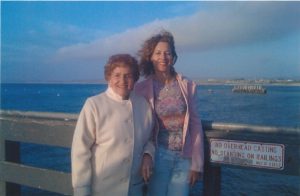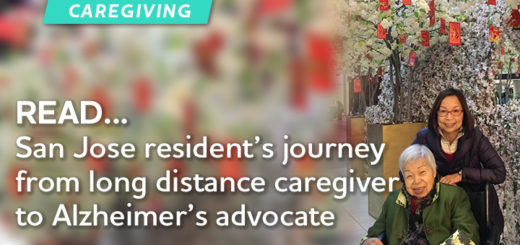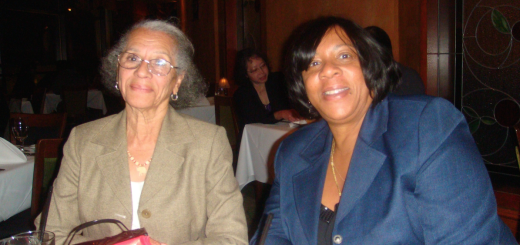Advocate Shares Story of Hospice Care and End of Life
 My name is Michele Lauren and I’m an Alzheimer’s advocate in honor of Grace, my mother, who is no longer with us to share her story.
My name is Michele Lauren and I’m an Alzheimer’s advocate in honor of Grace, my mother, who is no longer with us to share her story.
While living with late stage Alzheimer’s disease, my mother developed GI bleeding. I was quickly confronted with making a tough decision on her course of care. Her gerontologist explained a few options including diagnostics, blood transfusions and hospice care. The cause of the GI bleeding remained unknown, as I didn’t want my mother exposed to the stress of probing diagnostics to determine a problem probably requiring more invasive procedures, medications or surgery. The option of monthly blood transfusions at the hospital seemed difficult and stressful. Given the advanced progression of the disease, which required a compassionate method of treatment, hospice care sounded like the best recourse.
My initial reaction was one of despair and sadness as my mother’s physician talked to me about end of life, not prolonging life. I tried to get an answer about when she would die, but there was no definitive timeline. When he said I should consider hospice care, I became scared, thinking my mother had only a couple of weeks to live. He explained to me both palliative and hospice care focus on managing and easing pain and stress and increasing comfort in the patient. This form of care is most appropriate for patients when standard medical procedures can create more health complications. For those with advanced Alzheimer’s, improving both the quality of care and quality of life are of utmost importance.
I did move forward with hospice care and the turn around in my mother’s health was remarkable. She was taken off all medications and the GI bleeds greatly improved. They even stopped completely for a period of time. Her daily routine was closely monitored by hospice to insure her condition was stable. The bleeding elevated her heart rate, so blood pressure was monitored as well. She remained on hospice care for over a year and never went back to the hospital. During the last 10 days of my mom’s life she stopped swallowing and was bed ridden. Hospice was by her side everyday, moving her, bathing her and administering morphine and oxygen for pain and comfort. My mother was treated with dignity and respect and remained in the same residential care facility until the time of death. She never would have received this level of comfort and attentive care in the hospital. Hospice spared my mother’s life, as well as my own.
The importance of training future healthcare professionals to work in the field of hospice and palliative care goes without saying. The need for this kind of care is growing, particularly amongst Alzheimer’s and other dementias. One in every six people diagnosed with Alzheimer’s are on hospice care and almost half with dementia die on hospice. Studies have concluded that 6,000 more full-time healthcare professionals are needed in our nations nursing homes to meet the demand for hospice and palliative care services. The Palliative Care and Hospice Education Training Act (PCHETA H.R. 1676) will establish training programs for health professionals, enhance research to improve how palliative care is delivered and create an awareness campaign about the benefits and services available for patients and their families.
Helpful information related to this post:


















Thanks, Michele, for sharing your experience with your Mom. Good explanation of the benefits of palliative care. Your post helps us understand it in personal terms.
Beautiful story. Tugs at my heart Grace was my Cousin as is Michele
Thank you for sharing your personal story, and the power of taking care of the ones we love in the most thoughtful way possible.
Really moved by your story and great to know that your mother was in great hands, people who genuinely cared about suffering people.